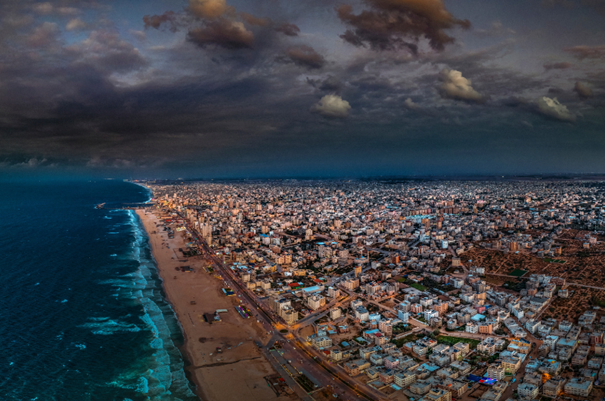
Gaza Strip at the Heart of Israeli
Gaza.png (zdroj: Canva)
Gaza, officially known as the Gaza Strip, is a focal point in the longstanding conflict between Israel and Palestine. This article delves into the history of Gaza, its geographical location, and its role in the Israeli-Palestinian conflict, including current challenges and political issues. Additionally, it will provide a detailed insight into the impact of recent events and the escalation of violence on the lives of residents and the future prospects of the region.
Geography and Demographics
· Where is Gaza?
Gaza is situated between Israel, Egypt, and the Mediterranean Sea, making it a key area in the Israeli-Palestinian conflict. On the map of Gaza, you can observe how this narrow strip of land forms the boundary between Israel and Egypt, with significant political and strategic implications. Gaza is not part of Israel but stands as a focal point in the conflict between Israel and Palestine.
· Where is Israel?
Israel is a country in the Middle East, bordered to the west by the Mediterranean Sea, to the north by Lebanon, to the northeast by Syria, to the east by Jordan, and to the south by Egypt. On the map of Israel, it is evident that Gaza is located on the southwestern border of Israel, exerting a significant influence on regional geopolitics. Israel is a nation with a rich history that plays a crucial role in many international affairs, including the conflict with Palestine.
Israeli Jerusalem: A City at the Crossroads of Cultures
The capital city of Israel, Jerusalem, holds paramount significance for this region. The city is considered sacred by the three major Abrahamic religions: Judaism, Christianity, and Islam. Israel gained control of East Jerusalem during the Six-Day War in 1967 and later annexed it, sparking international controversy. Jerusalem, in particular, is often at the center of the Israeli-Palestinian conflict, mainly due to its religious and historical importance.
Historical development
The history of Gaza dates back to ancient times, but the modern history of the region is closely intertwined with the Israeli-Palestinian conflict. After the end of the British mandate in Palestine in 1948 and the establishment of the state of Israel, Gaza became a refuge for Palestinian refugees. In 1967, after the Six-Day War, Gaza was occupied by Israel, leading to further tension and conflicts.
Israel, Gaza, and the Conflict
Gaza stands as a focal point in the conflict between Israel and Palestine. This conflict encompasses a range of aspects, from territorial disputes to political and religious differences. The region has been the center of numerous military actions and political debates, with both sides of the conflict asserting their claims and demands.
Current Situation and Challenges
Gaza is currently confronting particularly serious challenges following the recent escalation of the conflict with Israel in October 2023. Hamas, the governing party in Gaza, carried out a coordinated attack on Israel, leading to the following challenges:
· Military Escalation and Humanitarian Impacts: The recent military actions by Hamas against Israel and Israeli countermeasures have resulted in significant civilian and military casualties, increased infrastructure destruction, and further deterioration of the humanitarian situation in Gaza. This development has marked a substantial increase in tension and uncertainty in the region.
· Elevated Political Tensions: The conflict, among other consequences, has triggered international reactions and heightened political tensions in the region. Relations between Israel and Hamas, as well as international relations concerning the Middle East, have become even more strained.
· Impact on Civilian Population: Civilian residents of Gaza are the most affected by the violence and instability. They face direct threats to their lives, a lack of basic necessities, and a worsening of already critical living conditions.
· Prospects for Peaceful Resolutions: The escalation of the conflict also complicates efforts to achieve peaceful solutions. Despite international pressure for the resumption of peace talks, mistrust and the ongoing cycle of violence make prospects for long-term peace uncertain.
· Need for Humanitarian Assistance: Given the recent events, there is an urgent need for humanitarian aid in Gaza, including medical care, food, water, and infrastructure restoration.
This situation underscores the pressing need for international intervention and dialogue to prevent further escalation of the conflict and to provide essential assistance to the residents of Gaza. It is evident that without a stable and lasting peaceful solution, the future of Gaza will remain uncertain and tense.









